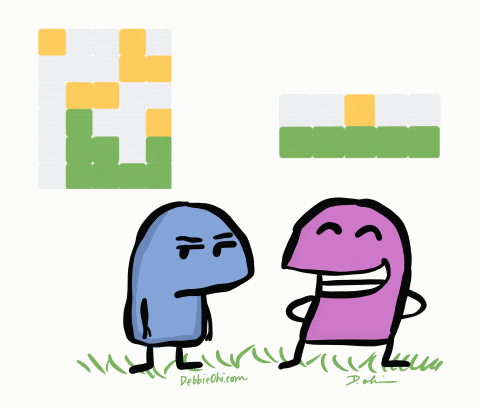- Kwik Brain Newsletter
- Posts
- Transform Your Brain One Word at a Time
Transform Your Brain One Word at a Time
How New Words Rewire Your Brain

In today's newsletter, we'll explore the remarkable science behind vocabulary enhancement and how learning new words literally reshapes your brain.
Dictionary.com just named 'demure' as its 2024 Word of the Year, sparked by a viral TikTok about workplace attire. This trending word highlights a deeper truth: your vocabulary shapes your brain in powerful ways.

Don’t get it? Google: “wordle”
What Happens When You Learn New Words
Each new word you learn strengthens your memory. Your brain gets better at both quick recall and long-term storage.
Learning words also improves your focus. As you practice using new terms, your attention span grows stronger.
Your problem-solving skills get sharper too. The brain becomes better at spotting patterns when you expand your vocabulary.
The Science Behind Word Power
Learning words physically changes your brain in three key ways:
Your brain creates new neural pathways when you encounter unfamiliar words. Think of it like building new roads between different areas of your mind.
The connections between brain cells get stronger each time you practice a new word. This makes it easier to remember and use that word later.
Your brain actually grows denser in areas that handle language and thinking. The white matter that helps different brain regions communicate also becomes stronger.
 | Have you heard about our super popular podcast yet? |
How Words Protect Your Brain
A rich vocabulary helps shield your brain from aging. Research shows it can:
Building "cognitive reserve" - Think of this like a savings account for your brain. Research shows that people who keep learning new words throughout life may delay age-related memory problems and dementia. Your brain has extra resources to draw from when it needs them.
"Sharp thinking skills" refers to how older adults who continue learning new words maintain or even improve their mental abilities. The research shows it can offset some natural effects of aging on the brain.
The "better control" part comes from studies showing improved "executive control" - this means better decision-making, planning, and ability to manage your thoughts and behaviors. Studies found that older adults who keep learning language perform better on tasks that require mental control.
"Stronger connections" means that learning new words increases what scientists call "functional connectivity" in your brain. Different areas of your brain get better at working together, which leads to better overall mental performance as you age.
The key finding from the research is that these benefits aren't just temporary - they build up over time when you consistently learn new words throughout your life. It's like exercise for your brain that pays off in the long run.

Make Words Work for You
Here's how to build your vocabulary effectively:
Use new words in conversations. Speaking them out loud helps them stick in your memory.
Mix up your learning methods:
Read different types of books and articles
Listen to podcasts
Watch shows with subtitles
Talk with others about what you're learning
Practice regularly. Short, frequent sessions work better than long, irregular ones.
Learn words in sentences rather than lists. Understanding how words fit together helps you remember them.
Your brain strengthens with every new word you learn. It's like giving your mind a workout that makes it more powerful and flexible.
What new word will you add to your vocabulary today?

Bonus: Tools to Build Your Word Power
Best Apps
Knoword: Play word guessing games to learn definitions
Vocabulary.com: Get custom word lists and fun quizzes
Atlas Vocabulary: Practice words in real-world contexts
Must-Listen Podcasts
Merriam-Webster's Word of the Day: Learn one new word daily
5 Minute English Vocabulary: Quick word lessons for busy people
English Vocabulary Booster: Master everyday words and phrases
Pick one tool and start today. A few minutes of practice can make a big difference.
How was today's newsletter? |